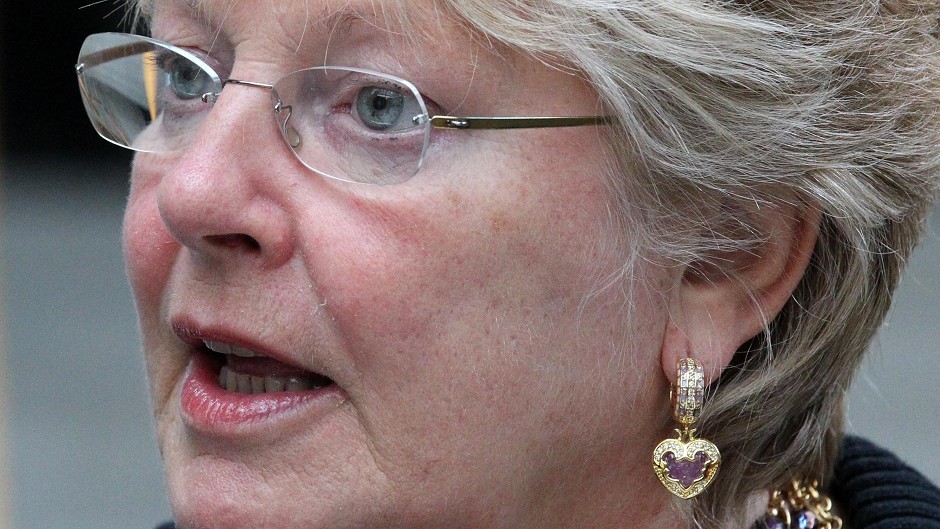Campaigners in favour of assisted suicide being legalised in Scotland are holding a rally outside Holyrood tomorow to urge MSPs not to throw out the plans for the second time in five years.
The My Life, My Death, My Choice group supporters want them to listen to the views of their constituents and allow the debate on the proposed legislation to continue its journey through the parliamentary process.
Campaigners have highlighted a series of opinion polls which suggest the vast majority of people asked support the Assisted Suicide (Scotland) Bill which is being fully debated for the first time tomorrow.
It aims to allow a person with a terminal or life shortening illness to end their life with the assistance of another.
The End of Life Assistance (Scotland) Bill, championed by the late independent MSP Margo MacDonald, was rejected by 85 votes to 16 in 2010.
The only supporters who represent the north and north-east were Richard Lochhead (Moray) and Liam McArthur (Orkney).
The new bill is being championed by Green MSP Patrick Harvie following the death of Ms MacDonald last year.
He and his supporters are confident that weaknesses identified in the 2010 plans have been dealt with to ensure the legislation was not open to abuse.
Campaigners are also hopeful that many of the new 48 MSPs elected in 2011 will vote in favour of the Bill.
But Holyrood’s health committee has concluded that the plans contain “significant flaws” and refused to make a formal recommendation to parliament as it was a matter of conscience.
Members noted the British Medical Association’s observation that there was no way to guarantee the “absence of coercion” in any new legislation to allow those with terminal or life-shortening illnesses to obtain help in ending their suffering.
A report published by MSPs raised concerns that the proposals had the potential to undermine suicide prevention messages by “softening cultural perceptions of suicide at the perimeters”.
The Law Society of Scotland has claimed that the Bill would fail to protect the people it intends to due to lack of clarity in definitions.
Alison Britton, convener of the organisation’s health and medical law committee, said: “We remain concerned over the lack of definition of the key terms, such as ‘assistance’ and ‘life-shortening’ and the functions of the licensed facilitator are still uncertain.
“Lack of such clarity leads to ambiguity and leaves the legislation open to interpretation.”
But Bob Scott, My Life, My Death, My Choice spokesman, said he hoped MSPs would back the Bill because the debate happening today only focused on the principles of the legislation, not the detail.
“Passing the Bill at stage one would allow amendments to be tabled and debated to see if they can deliver the safeguards and protections that all MSPs, as well as those of us in favour of the Bill, want to see,” he added.
“We hope that one of the things MSPs will take in to consideration is the views of the electorate, who are clearly in favour, and do not dismiss the Bill out of hand at such an early stage in the parliamentary process.”
The Church of Scotland has written to all 129 MSPs urging them to do more to improve palliative care for those approaching the end of their life rather than passing the legislation.
The Rev Sally Foster-Fulton, convener of the church and society council, said: “The certainty of world-class palliative care is the best response to those who are fearful of the final stages of their lives or the life of one they love.”
The call is backed by NHS chaplain the Rev Dr Derek Brown, who has 28 years of experience working at Raigmore Hospital in Inverness and for the last 10 years at the Highland Hospice
“People often see things in a different light when they have to confront these end of life issues for themselves or their loved ones,” he added.
“It is important people know they can access high quality palliative care, and I have seen the comfort this brings not only to the individual but also to their family.”
Leading Christian charity Care for Scotland has claimed statistics from two major Swiss assisted suicide clinics suggested that at least 541 people a year could take advantage of the law if it is passed in Scotland.
The calculation is based on figures from two leading assisted suicide clinics in Switzerland, Dignitas and Exit which revealed 787 assisted suicides took place in 2014.
The campaign group said: “By comparing the size of Switzerland’s population with Scotland’s, it is possible to work out an equivalent Scottish figure of potentially hundreds of people – an estimated 541 a year across Scotland – taking up assisted suicide.
Care for Scotland national director Stuart Weir said: “I hope MSPs kick this Bill into the long grass, we’ve got an aging population here in Scotland and legalising assisted suicide will put vulnerable people at risk.
“The legislation is simply not up to scratch and based on our estimates from the figures from Switzerland, once you open the door to assisted suicide, the evidence suggests the numbers just go up.
“Human life has value independent of circumstances, however difficult those circumstances may be and we should be trying to help people to live, not ushering them into premature death.
“MSPs should vote against this highly irresponsible Bill and take the chance to stand up for life.”
